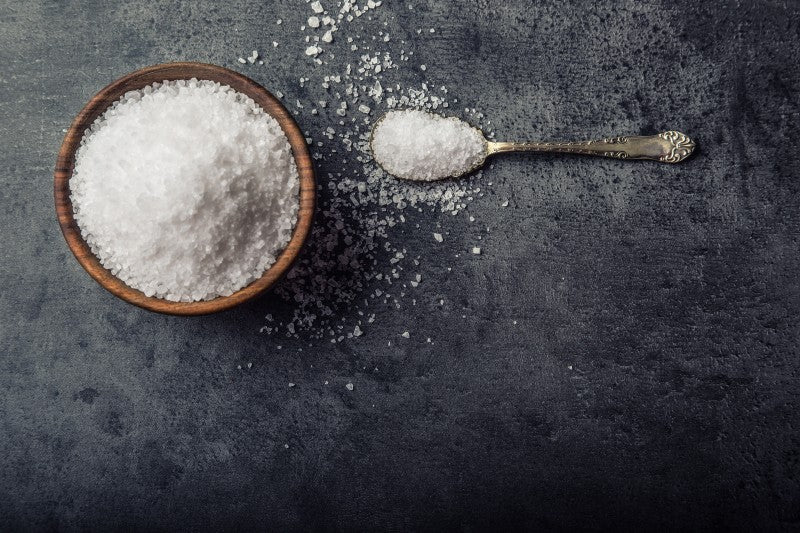
Sodium Intake Found to Decrease Blood Pressure
Time and again these antiquated recommendations have been disproven, yet people still continue to abide by wrong advice.
Well, a new study strikes a blow at the age-old advice to lower sodium intake to reduce blood pressure. On top of that, the study also indicates that most Americans are consuming a healthy amount of salt. In fact, the new Framingham Offspring Study shows that consuming < 2,500mg of sodium daily is actually associated with higher blood pressure.
Related - Sodium Requirements for Athletes
The new study is in stark contrast to the American Heart Association's daily recommendation of no more than 2,300 mg of sodium daily, about one teaspoon of regular table salt. Typically, it's recommended to consume a low to moderate amount of sodium, and it was generally thought high sodium intake elevated blood pressure, which is a prominent risk factor for heart disease.
However, the new study found that recommendation to be erroneous. On top of that, the lowest blood pressure among the subjects were those who consumed 4,000mg or more per day.

Subjects consuming the least amount of sodium (blue line) had the highest blood pressures. (Framingham Offspring Study)
Outdated Recommendations
The Framingham Offspring Study analyzed over 2,600 men and women over a period of 16 years to measure the long-term effects of salt consumption. This latest sodium study was conducted as an offshoot of the noteworthy Framingham Heart Study, which is a joint venture between the National Heart Lung and Blood Institute and Boston University.However, the American Heart Association bases its recommendation of sodium intake from an older 2001 study in the New England Journal of Medicine (NEJM). That study only used a population of 412 participants, and only studied them for 30 days.
Lynn L. Moore, an associate professor of medicine at Boston University School of Medicine and member of the research team conducting the new study remarked:
A low-sodium diet has been popularized for a few decades, and I think it originally had to do with the observation that among people with high blood pressure if you restrict their sodium intake, their blood pressure actually goes down.
I think that led to the inference that restricting your sodium intake in general (among the public) would actually reduce your risk of developing high blood pressure.
American Heart Association Response
Cheryl Anderson, a member of the American Heart Association's Nutrition Committee, issued a statement disputing the study's findings, citing some weaknesses in the methods of data collection used:When I put it in the broader context of the general literature around dietary sodium assessment and blood pressure, particularly from what we know about clinical trials, (the study) didn't bother me in any way.
Until I see the whole paper, this is not going in any way to disrupt my current thinking around that fact that high sodium intakes are likely to increase your blood pressure.?
Current Sodium Recommendations
Although there is a growing body of evidence suggesting higher intakes of sodium do not correspond to increased blood pressure, the most current Dietary Guidelines for Americans (DGA) remains steadfast in their recommendation to limit sodium intake to less than 2,300mg per day.The next update to the DGA is scheduled for release in 2020, at which point even more research may be published refuting current recommendations.
How do you feel about sodium intake, and do you monitor your daily intake of salt? Leave a comment below!






